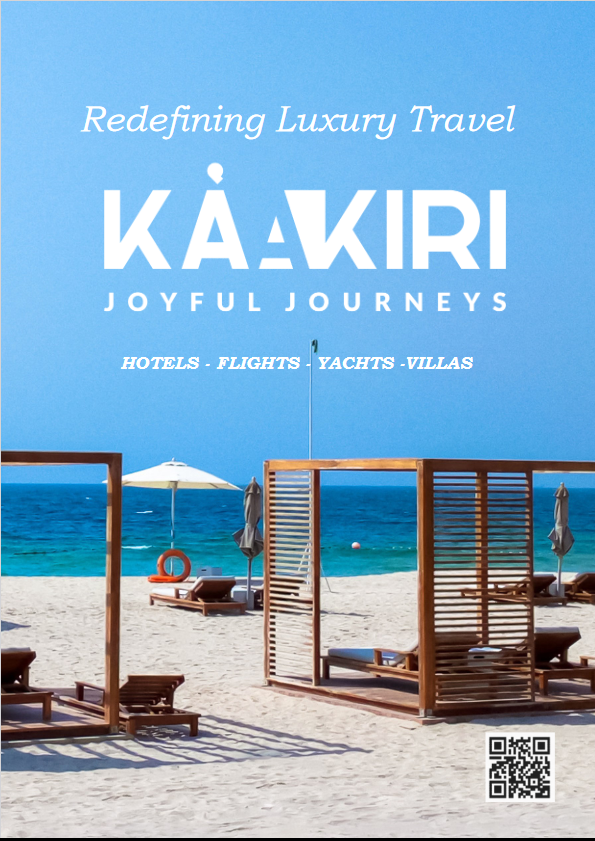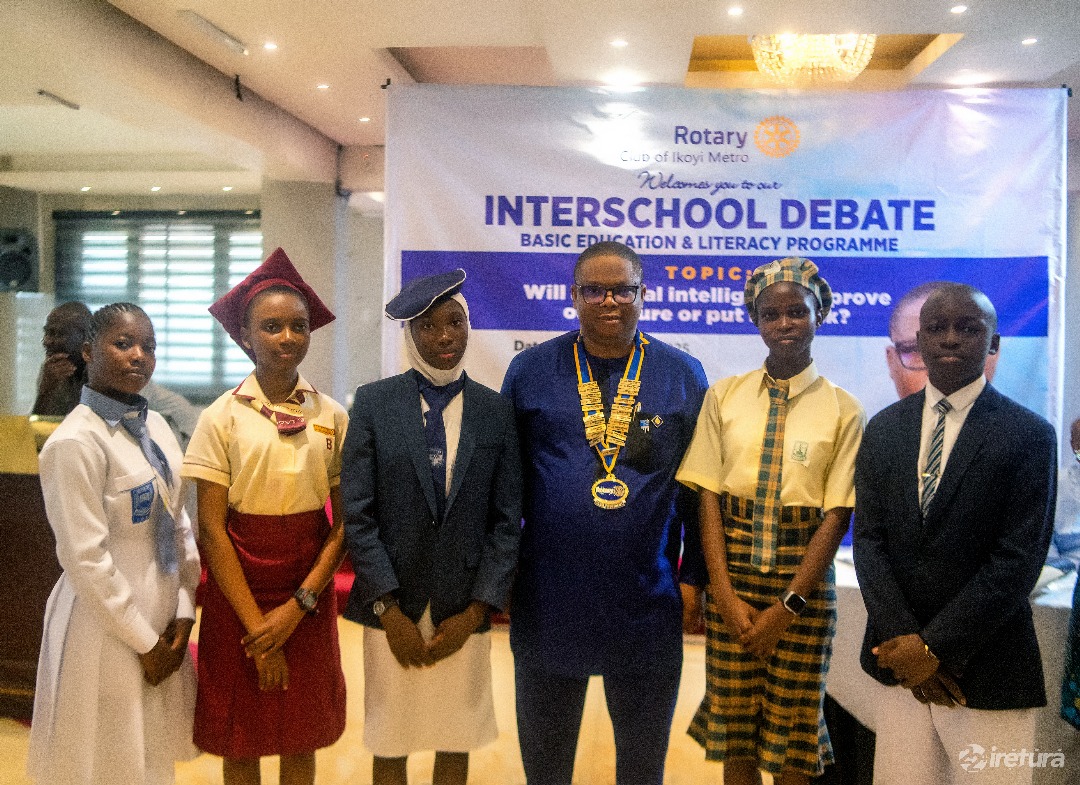Mumini Alao biography launch celebrates his legacy as a sports journalist, mentor and media entrepreneur with stories of integrity, excellence and passion
On Sunday, August 10, Mumini Alao, one of Nigeria’s foremost sports journalists, will host family, friends, colleagues and associates at an event in Lagos to formally present his autobiography – his third book – which vividly captures his life story as a sports writer and media entrepreneur.
Alao also shares stories on his education, private life, challenges, and accomplishments.
The book, delivered in his inimitable writing style which has earned him fans all over the world, is a rich and riveting tapestry of the life and times of a great, but humble man.
Dignitaries expected at the book presentation and public lecture include the Chairman of the National Sports Commission, Mallam Shehu Dikko; former Governor of Lagos State, Babatunde Raji Fashola, SAN, who is the guest speaker; Minister of State for Industry, Senator John Owan Enoh; Chairman, House of Representatives Committee on Sports, Hon. Kabiru Amadu, and the President of the Nigeria Football Federation, Alhaji Ibrahim Gusau, amongst others.
Alao, who studied Mass Communication at the University of Lagos, knew a long time ago that he wanted to be a sports journalist.
It is always strategic for one to pick his or her spot early in life and remain focused with the guidance of mentors.
That was exactly what Alao did, and he never took his eyes off the ball since the whistle was first sounded when he was a teenager.
In his quest to contribute to the body of knowledge, Alao – a great “Akokite” – went back to the University of Lagos for his Master’s and PhD degrees, which demonstrates his commitment to excellence and lifelong learning.
As a football aficionado and iconic sports writer, his PhD thesis – as you would expect, and you probably guessed right – was on football.
His research topic was: ‘The Influence of Audience Preference on Media Coverage of Domestic and Foreign Football in Nigeria (2020).’
Alao and I have come a long way together. He is reliable and can be trusted. He is also a dependable friend and colleague with an unassailable quantum of integrity. I call him “my brother.”
Since our paths crossed as fresh graduates 37 years ago at Complete Communications Limited (CCL), the company noted for publishing Complete Football, Complete Sports, Sports Souvenir, Complete Football Extra, International Soccer Review, Complete Football International, and Climax, we have related like Siamese twins.
Our bond of friendship has flourished because of mutual respect and trust between us.
How did it all begin? Let us dial back to 1988 when Dr. Emmanuel Sunny Ojeagbase (1950–2022), a renowned sports journalist and arguably the doyen of sports publishing in Nigeria, offered Mumini and me employment.
Call it an act of providence or mere coincidence, but that was what happened, and we shared the same desk in the newsroom when we resumed for work.
Whereas I did my NYSC (after graduating from the University of Benin, Benin City, Edo State) at the Anambra State College of Education, Awka (as it was then known), where I taught mathematics in 1986–87, Alao did his national youth service at the Anambra Motor Manufacturing Company (ANAMMCO), Emene, Enugu in 1987–88, where he was a public relations assistant.
By this time, we had not met, but we were both fascinated by the breadth of fresh air and innovation that Ojeagbase brought into sports journalism.
Publisher, or S.O. as we fondly called Ojeagbase, exhibited great talent and creative enterprise as sports editor in terms of ideas, content, storytelling and page designs that resulted in the incredible look and feel of the pages – first at Sunday Concord, and later at The Guardian – before he went solo in 1984 and launched Sports Souvenir.
At different times in 1988, we simply walked into Ojeagbase’s office in Okota, Lagos, as young graduates, asking for jobs that were not advertised.
When S.O. saw the determination in our eyes and the conviction to excel like him in the sports writing business, he welcomed us with open arms.
Our gamble paid off and we were employed. Those encounters and the knowledge gained at “Sunny Ojeagbase’s School of Sports Journalism” were profound.
From that time through the several seasons that followed, Alao and I formed an unbreakable bond of friendship that waxed stronger and stronger over the years.
We did not compete, but complemented each other. Alao embodies core values that have not only shaped his successful career, but have also inspired others in the sports journalism industry.
His passion for storytelling, dedication to excellence, resilience and perseverance, commitment to sports development, as well as integrity and professionalism have contributed to his strong personal brand and glowing reputation.
Although I am not the book reviewer, I was privileged to get an autographed copy from the author, which I read voraciously.
Please don’t blame me – Alao is a gifted writer and great storyteller, and his flowery prose is gripping.
Once you start reading the book, you don’t want to put it down because it is unputdownable.
S.O., according to Alao, inspired him to finally become a sports journalist.
But before then, his Ghanaian English Language teacher in secondary school, John Amoah, told him that he would make a good journalist because of his excellent writing skills.
On issues relating to personal and professional development, Alao and I usually confide in each other, just as we did with Ojeagbase who was a mentor to us when he was alive.
Besides Ojeagbase, Alao says his father, Engr. Ayub Adeleke Kolawole Alao-Arigbabuwo (1939–2006), was also his mentor and inspiration. He dedicates the book to both of them.
Alao’s first story in Complete Football magazine was published in the October 1988 edition which sold for N3.00.
It was an exclusive story about the man behind the exodus of Nigerian footballers to Belgium, Dr. Willy Pluym.
From that moment onwards, Alao did not look back, as he went on to build a flourishing sports journalism career that took him to over 30 countries in Africa, Europe and North America.
By March 1989, Alao was assistant editor, and for the first time, the football magazine reached a historic 50,000 copies print run milestone with a projected 90 percent sales.
The Publisher could not hide his joy, so he penned him a congratulatory letter. Barely a year after Alao resumed work at the company, he was promoted as editor of Complete Football magazine.
He was only 26 years old. That was when it dawned on him that he was in for a marathon, not a sprint, at the sports publishing company.
His first reportorial assignment to Europe was in April 1992 to interview Etim Esin, the controversial Nigerian footballer at the time, over his alleged involvement in drug use while playing for S.K. Lierse Football Club in Belgium.
By the time the stories from his encounter with Etim Esin were published, the May and June 1992 editions of Complete Football, with print-runs of 100,000 copies each, sold out!
Alao says that trip to Belgium was a watershed moment in his sports journalism career as those exclusive stories “brought him to limelight in sports journalism circles in particular, and the Nigerian sports fraternity in general.”
Alao is a respected sports journalist known for his accurate reporting, excellent memory recall and high ethical standards.
His record-keeping is flawless. He has equally maintained high standards of integrity and professionalism, earning him recognition and admiration from his peers and the sports community.
The author’s unwavering commitment to his job is evident in his long-running and authoritative Soccertalk column and how he served with distinction in the management positions he held in the company.
After serving Complete Communications Limited meritoriously for over 30 years, rising to the top as Group Managing Director (GMD), Alao is now executive consultant to the organisation, in addition to running Pentacrest Company, his own sports media and marketing consultancy, book publishing and content management firm.
During his active years at CCL, Alao demonstrated all the time that he was committed to the vision and ideals of the company.
He was loyal to the business 100 percent and the sports writing guru was equally trusted by the Publisher and directors.
It was a relationship which had its own challenges, and on more than one occasion, Alao might have quit over disagreements with the Publisher.
But that did not happen because he reflected on the deep and personal relationship between him and his boss.
Each time, he discussed the matter with his wife, Medina, and his father. Both of them prevailed on him not to walk away.
The Publisher, who did not hide his admiration for Alao, was equally accommodating and always cheered and praised him for being a worthy friend and dependable business partner he could count on.
In 1996, Alao won two significant awards: Sports Reporter of the Year at the Nigerian Media Merit Awards, and the Diamond Awards for Media Excellence – the first sports journalist to win both awards in the same year.
This achievement was not surprising because Alao has demonstrated a strong commitment to promoting sports development in Nigeria, highlighting the importance of sports in national growth and unity.
It was also in 1996 that Alao got a seat at the table of CCL board of directors, in addition to being executive director of Sports Souvenir Limited.
It must be stated that Alao earned these recognitions and appointments through a dint of hard work, exceptional performance, perseverance, commitment, loyalty, humility, dedication and excellent accomplishments.
The Publisher, who was a mentor and big brother, believed Alao could do no wrong; he had absolute faith in Alao’s abilities and personal example.
The author, being a versatile sports journalist, also presented sports programmes on radio and television.
He freelanced for the BBC for a while and made his mark, as usual, as a professional who is always committed to his craft.
Alao also groomed several generations of reporters and editors, and he continues to mentor them even when some of them have moved on to take up other roles, because, as he says, “we are a big sports family.”
My brother Alao is a Muslim and deeply religious man. He is married to Medina, his wife of over 30 years, and they are blessed with three lovely children: Mustapha, Abdulmueez and Mariam.
Alao’s hobbies include reading, writing, travelling, and discussing sports.
He has been a longstanding Liverpool fan and his favourite food is ogi (the Nigerian equivalent of custard) and akara (bean cake).
At 60 years old, Alao says the biggest life’s lesson his father taught him was integrity.
We are at liberty to add values such as respect, humility, hard work, perseverance, and loyalty to his integrity playbook.
He authored Soccertalk: Selected articles on contemporary issues in Nigerian football (2008), and The Making of Nigeria’s Dream Team: Football Gold Medal Winners at Atlanta ’96 Olympic Games (2021).
His fourth book, a biography on the late Peter Rufai, popularly known by his nickname, Dodo Mayana, will be coming out soon.
Alao is grateful to God that his mother, who played a selfless role in his life, is hale and hearty at 88 years old.
What more can I say about this great mind and patriotic Nigerian who has also served the country in different capacities and built significant monuments of excellence, one brick at a time.
We definitely need more devoted men like Dr. Mumini Alao with proven abilities and extraordinary skills to make Nigeria – and indeed the world – a better place.
Congratulations, my dear brother, on your steady climb to the top.
I am personally proud of our friendship, sincerity and shared values which have enabled a longstanding relationship between us.
Best wishes always in the years ahead.
By Ehi Braimah
Braimah is a public relations specialist, marketing strategist and media entrepreneur.
Like this:
Like Loading...
Related
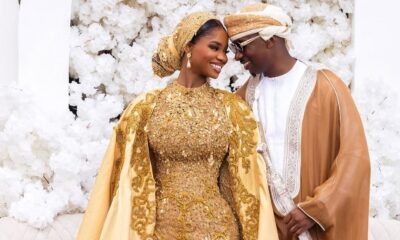
 Celebrity news4 weeks ago
Celebrity news4 weeks ago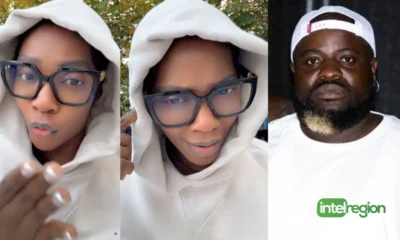
 Entertainment3 weeks ago
Entertainment3 weeks ago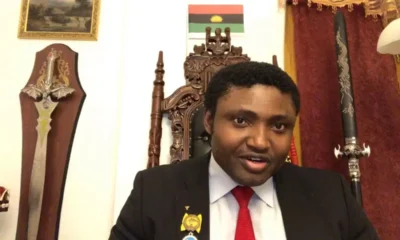
 Breaking News4 weeks ago
Breaking News4 weeks ago
 Celebrity news4 weeks ago
Celebrity news4 weeks ago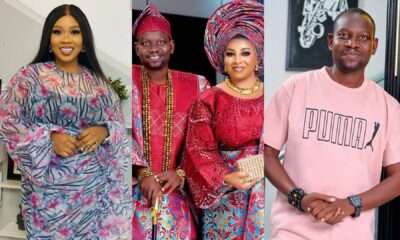
 Celebrity news4 weeks ago
Celebrity news4 weeks ago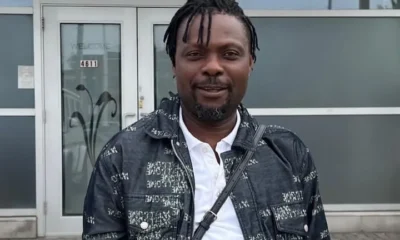
 celebrities3 weeks ago
celebrities3 weeks ago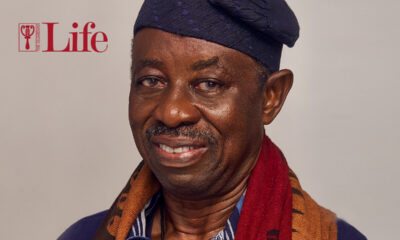
 Entertainment4 weeks ago
Entertainment4 weeks ago
 Celebrity news4 weeks ago
Celebrity news4 weeks ago
